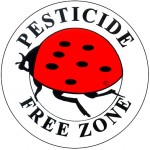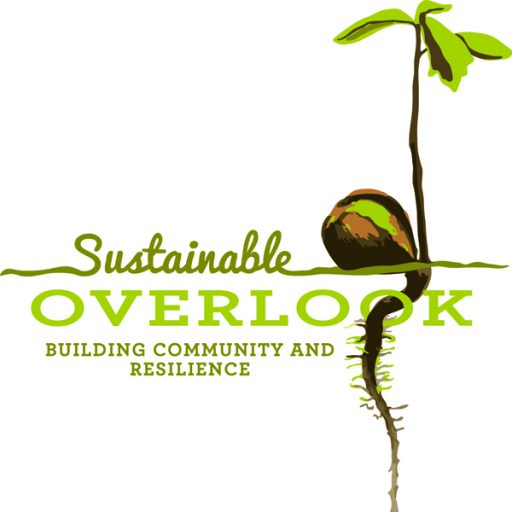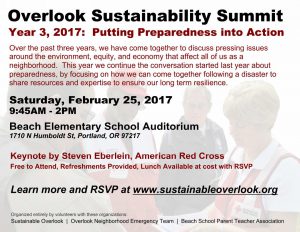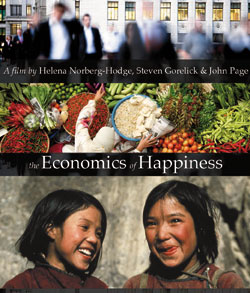The Economics of Happiness
Join Sustainable Overlook for an inspiring documentary right before the election.
Sunday, November 6th at the Lucky Lab Taproom on N. Killingsworth Ave.
Film starts at 7 pm. Discussion afterwards. Free! All are welcome. Food and drinks available for purchase.
This film produced by Helena Norberg-Hodge “features many voices from six continents calling for systemic economic change. The documentary describes a world moving simultaneously in two opposing directions. While government and big business continue to promote globalization and the consolidation of corporate power, people around the world are resisting those policies and working to forge a very different future. Communities are coming together to re-build more human scale, ecological economies based on a new paradigm: an economics of localization.” (Wikipedia)
“An award-winning documentary film, The Economics of Happiness, spells out the social, spiritual, and ecological costs of today’s global economy. Importantly, the film also highlights the many benefits of a shift towards the local, and showcases some of the steps people are already taking worldwide.” (Local Futures.org)
Fall Film Series!
Join Sustainable Overlook for four great documentaries that will change the way you look at food, the economy and community.
Free! All are welcome.
At New American Restaurant, 2103 N. Killingsworth St.:
Wednesday, Oct. 12 Inhabit: A Permaculture Perspective
Tuesday, Oct. 25 The Power of Community: How Cuba Survived Peak Oil
At Lucky Lab Tap Room, 1700 N. Killingsworth St.:
Sunday, Nov. 6 The Economics of Happiness
Tuesday, Nov. 22 Just Eat It: A Food Waste Story
Films start at 7 pm. Discussion afterwards.
Food and drink available for purchase.
Sustainable Overlook 2106 Film series Poster
2016 Overlook Yard Sale and Free Share, July 23-24!
This event is sponsored by Sustainable Overlook, a group of neighborhood volunteers interested in building community and resilience.
Register here to be on the map.
Carbon Footprint Workshop Postponed
The workshop on Saturday 6/18 has been canceled. Please check back for more workshops in the future!
Carbon Footprint Workshop
My Basic Carbon Footprint: A Free Workshop
Saturday, June 18, 2016 10am-noon 1905 N. Alberta St.
How much carbon are you personally dumping into the air? Figure out what your carbon footprint is (individual or household) at this free workshop. Instructor Mike O’Brien was for 10 years the city of Portland’s expert on green building, and built a showplace low-energy house right here in Overlook.
Everyone welcome. Max 20 participants, please register below.
Gather and bring five pieces of information to the workshop. All of the electricity, natural gas and heating oil consumption figures can be gotten from your utility.
1. 12 months total of electricity used
PGE Customer Service: 800-542-8818
Pacific Power Customer Service: 888-221-707
2. 12 months total of natural gas consumed (if gas heat) or 12 months total of heating oil consumed (if oil heat)
Northwest Natural Customer Service: 800-422-401
3. 12 months total auto miles traveled (each car)
4. automobile gas mileage (each car)
5. 12 months total air miles travelled
Air travel distances: http://www.worldatlas.com/travelaids/flight_distance.htm
Register here
Questions? Email sustainable@overlookneighborhood.org
Presented by Sustainable Overlook
Garden Safe this Spring
 ing outside as the days lengthen. As neighbor’s thoughts turn towards their gardens, it’s also the time of year when a lot of pesticide use occurs. Help make our neighborhoods safer by practicing natural gardening methods and talking with your neighbors about toxic chemicals like ‘weed n’ feed’ and Roundup. Show your support for healthy neighborhoods by hanging up a lady bug lawn sign. It’s free! Sign up here if you live in Overlook Neighborhood.
ing outside as the days lengthen. As neighbor’s thoughts turn towards their gardens, it’s also the time of year when a lot of pesticide use occurs. Help make our neighborhoods safer by practicing natural gardening methods and talking with your neighbors about toxic chemicals like ‘weed n’ feed’ and Roundup. Show your support for healthy neighborhoods by hanging up a lady bug lawn sign. It’s free! Sign up here if you live in Overlook Neighborhood. Resilience Summit a Success
|
Last Saturday, more than 100 neighbors and other Portland residents gathered for Sustainable Overlook’s second annual Resilience Summit, co-sponsored with the Overlook Neighborhood Emergency Team (NET) on the theme of preparedness. The morning began with a terrific keynote presentation “Surviving a 9.0: Lessons from Chile and Japan,” by geotechnical engineer Allison Pyrch. That excellent – and sobering – presentation was followed by four speakers: Captain Corey Wilson from Station 24 spoke about Portland Fire & Rescue’s response strategy after a big seismic event; Ernie Jones from the Portland Bureau of Emergency Preparedness spoke about PBEM’s NET and BEACON programs; Mitch Bixby (Overlook NET team lead) reviewed our team’s efforts; and Leslee Lewis Overlook NET lead and Sustainable Overlook spoke about the map your neighborhood block preparedness program and preparing your own home. After a terrific lunch catered by New American Restaurant, there was more information and conversation at tables for NET, Phlush (the 4-bucket Emergency Waste System) and Thrive (freeze-dried foods); and an area with some ideas for your emergency food and supply stash. The day wound up with four more presentations: Emergency Radio Communications by John Beaston, Staging Areas and How They Work by Mitch Bixby, Food Prep Using Freeze-Dried Foods by Angie Smith, and Knowing Your Neighbors and Mapping Your Block by Josh Cabot. There was plenty of food for thought, and neighbors went home with some concrete ideas on how to increase their preparedness. Luck favors the prepared. |
Coming in February: Energy & Carbon Footprint Workshops
Concerned About Climate Change? Take Action!
Save the Date! Resilience Summit 2016
Overlook Resilience Summit
Preparation: Where Resilience Begins
Saturday, February 20, 2016
Following up on last year’s sustainability summit held at Beach School, Sustainable Overlook is partnering with Overlook’s Neighborhood Emergency Team (NET) and Multnomah County’s Schools Uniting Neighborhoods program to present a second summit that will focus on resilience. This is an open invitation for neighbors to come together and discuss how we can prepare our homes for the unexpected, connect more closely as neighbors to serve as mutual safety nets, and adapt to changing conditions using specific plans that are being collectively-developed by NET (Neighborhood Emergency Teams). Mark your calendars now and click here for details!



